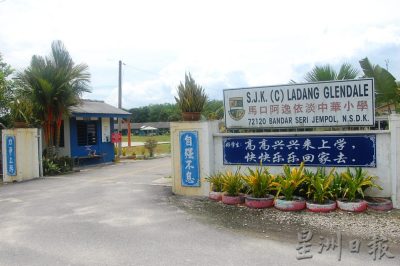
By Khoo Ying Hooi
Since the celebration of 50th anniversary of Rukun Negara this year, there have been rigorous debates and ideas on Rukun Negara among academics, in the public and also in social media. First introduced as the national philosophy on Merdeka Day in 1970, Rukun Negara comes in two parts: the objectives and principles.
In the Rukun Negara text, there are five objectives as the followings:
1. Achieving a greater unity of her people;
2. Maintaining a democratic way of life;
3. Creating a just society with equitable sharing of prosperity;
4. Ensuring a liberal approach to the country's rich and diverse cultural traditions, and
5. Building a progressive society by harnessing modern science and technology.
In fulfilling these objectives, the Rukun Negara underlines five core principles:
i. Belief in God
ii. Loyalty to King and Country
iii. Upholding the Constitution
iv. Rule of Law
v. Good Behavior and Morality.
In this column, I would like to make four points.
Rukun Negara came as a result of the racial riot of May 13, 1969. Linking to that, my first point is about the debate on national unity. The issue of the national unity is a never-ending debate in Malaysia. There are many analysis and discussion surround Malaysia's nation-building process. Recently, we also witnessed the debate on vernacular schools vs national unity. Some have argued that the existence of vernacular schools has potential to dilute the concept of Malaysian. Such form of argument is not new but it has become seasonal whenever there is any debates surround on unity and it is especially so during Merdeka Day and Malaysia Day. Some argue the unique compositions that based on multi-diversity in terms of race, religions, cultures and languages can be obstacles to the construction of Malaysia as a united country. I find that absurd, as the diversity is the foundation that we have been proud of in this country. From time to time, we also came across several efforts under the name to forge a more united Malaysia, for instance the slogan of 1Malaysia as introduced by former prime minister Najib Razak. I have long had my reservation about the concept of 1Malaysia, as I do not see there is a need for that. We have had enough slogans. After all, we have Federal Constitution and Rukun Negara, among others that should be given more emphasis in the schools and to the public.
Second point is about the importance of civic education. In 1972, the civic education was then introduced as a compulsory school subject to all students from standard four to form three whilst the civics elements were incorporated in the Local Studies subject for standard one to standard three. Among the objectives to introduce the civics syllabus then was similar as what the government continue to call for, such as to instill patriotism, to forge a harmonious society and so on. However, the problem is not about our syllabus, it is about the inconsistency of the government in their education policies. Another problem is the implementation on the teaching and learning of the subject that was less than satisfactory. As a non-exam subject, many regarded it as to be unimportant. Such problem continues until today. Hence, when the current government announced that Rukun Negara would be included in the education system, I have my reservations, as this is nothing new. Rather, what the government needs to do is to overhaul the long overdue structural problem of our education system and the mindset of the people of what education really is. The mindset of non-exam subjects does not need much attention has to be eliminated from the minds of everyone including the educators if we want to nurture civic-mindedness in Malaysia. It does not serve much point spending time and resources to develop another syllabus, if the non-exam subjects continue to be ignored.
In my third point, I would like to bring in the comparison of Pancasila in Indonesia and Rukun Negara. Both Pancasila and Rukun Negara share the national philosophy or principles anchored on the societal values with the same spirit to ensure a peaceful and cohesive society. These values are significant as it defines the character of its people. The five principles of the Pancasila are: believe in the one and only God, a just and civilized society, united as a nation, to be guided by consensus and social justice for all. What I would like to highlight is that the challenges we faced with Rukun Negara are not alone. In Indonesia too, they continue to struggle with the lack of understanding on Pancasila. For instance, June 1 became a national holiday to commemorate the birth of Pancasila after President Indonesia Jokowi signed a presidential decree in 2016. By saying that, we should first recognize our weakness and fault in our policies before we come up with any solutions, as very often, the solutions that the government gives are short-term and not sustainable as I highlighted in my third point on civic education.
Fourth, we must interpret Rukun Negara from various perspectives and continue to make Rukun Negara contemporary so that we learn how to appreciate the spirit behind our national principles. The scope of Rukun Negara should be broadened in its interpretation. We need to understand the Rukun Negara not through the five principles, but the whole text. The values promoted by the Rukun Negara have profound impact not merely socially, but for instance, it also touches on fair distribution of economy as highlighted in the third objective, "Creating a just society with equitable sharing of prosperity". The objectives and the five principles are related on the development of Malaysians in every sphere of life. Just few days ago, Jabatan Kemajuan Islam Malaysia (JAKIM) came up with a poster in its tweet saying, "Apa itu fahaman liberal?" Then it provides the definition as, "Suatu bentuk pemikiran yang bebas, terbuka dan dipandu oleh hawa nafsu dalam bidang yang pelbagai". In this country, liberal approach has often being seen as an "enemy" especially in the framework of Islam. Such form of misinterpretation needs to be tackled as it reveals our ignorance on political philosophy. The fourth objective of the Rukun Negara has clearly stated, "Ensuring a liberal approach to the country's rich and diverse cultural traditions". The principle itself protects and promotes religious harmony. It implies that solutions can be found by maintaining a liberal approach in addressing diversity that this country has.
As we celebrate Malaysia Day this month on 16 September, let us be reminded again the ongoing debates over two birthday celebrations in this country and Article 153 in our Federal Constitution, among others. All these continuous debates are a signal that there needs to be attention given constructively on Malaysian history. Today, the Rukun Negara has become more relevant than ever. The philosophy embedded within the Rukun Negara is essential to cultivate understanding of the equality from various spectrums: politically, economically and socially, which has been continually tested throughout the country's history. Regardless of our diversity, we must recognize that the values were universal in nature and it complements each other.
(Khoo Ying Hooi is Universiti Malaya Senior Lecturer.)
ADVERTISEMENT
ADVERTISEMENT


































